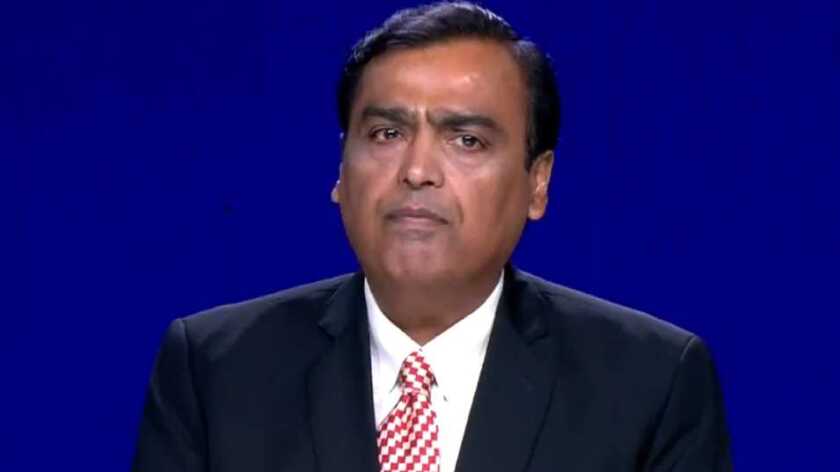The US social media company is taking a 9.99% stake Jio Platforms, the digital technology arm of Reliance Industries, which also owns Reliance Jio, the 4G-only mobile operator.
“India is a key market for Facebook with millions of users and its messaging app WhatsApp also has a huge user base,” said Aurojyoti Bose, lead analyst at GlobalData. “On the other hand, Jio is one of the largest telecom networks in India with around a 370 million subscriber base and the deal can help Facebook in further enhancing its footprint in the country.”
Jio Platforms is the digital services entity that houses Reliance’s telecoms arm Jio Infocomm, better known as Reliance Jio, as well as its news, movie and music apps, along with other businesses.
Reliance chairman Mukesh Ambani (pictured) said: “In the near future JioMart ... and WhatsApp will empower nearly 30 million small Indian [grocery] shops to digitally transact with every customer in their neighbourhood.”
Reliance Industries is different from Reliance Communications, the former mobile operator owned by Mukesh Ambani’s brother Anil Ambani, which once owned Global Cloud Xchange (GCX), now an independent company.
According to research company Bernstein, Jio has 355 million 4G subscribers in India, compared with 103 million for Bharti Airtel and 90 million for Vodafone Idea, both of which are still largely 3G or even 2G operators.
Most other operators in India have pulled out of the mobile business since the arrival of Jio in the market four years ago.
“The deal has become even more crucial for Facebook as WhatApp is planning to roll out its payments app in India and with Jio as its local partner will be pivotal in navigating the regulatory hurdles,” says Bose.
“Moreover, encouraged by the growing popularity of TikTok, Facebook has plans to launch video app Lasso, which will benefit from Jio’s huge subscriber base in India.”
Ajit Mohan, Facebook’s India director, confirmed: “We have a lot of people across our platforms.” Facebook is “committed to this massive digital transformation that India is going through”, he said.
Dean Bubley, founder and director of Disruptive Analysis, said the investment news “is a showstopper” that is “highlighting a broader trend that's been happening for some time”. In other words, some telecoms companies “are actually turning into proper technology players, or merging with them”, he said. “And cloud players are becoming network-owners/operators.”
Bubley noted a number of similar moves by telcos, including NTT, China Unicom, Rakuten, SoftBank, Turkcell and Türk Telecom.
“At the same time, Facebook, Google and other internet firms own lots of subsea fibre and other network assets,” said Bubley, as well as other telecoms operations. “If you still call them ‘OTTs’ you should be fired for incompetence and ignorance,” he added.
He noted: “‘Proper’ telcos can’t just treat networks as a commodity and focus on branding and bundling. They need R&D, and a focus on ‘tech’ not just services. … Telco exceptionalism is dead.”
Bose wrote: “Jio will benefit from the technology expertise of Facebook. In addition, the deal is a step forward towards Jio’s strategy to make it debt-free and the company is expected to attain debt free status by March 2021.”
The investment means Jio Platforms is valued at $65.95 billion, said Bose. “It has now become the fifth largest company in India in terms of market capitalisation.”
He said that collaboration between WhatsApp and Jio’s e-commerce venture, JioMart, is “likely to aid in delivering groceries to customers from nearby stores. This is even more timely now that the demand for online grocery delivery services has gone up amidst lockdown due to Covid-19.”
According to the Reuters news agency, the deal is Facebook’s biggest since its $22 billion buyout of WhatsApp in 2014.






